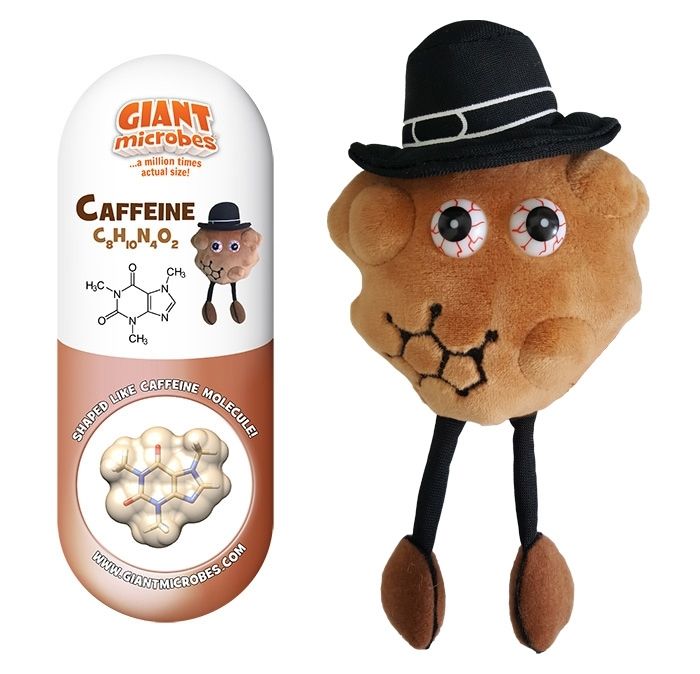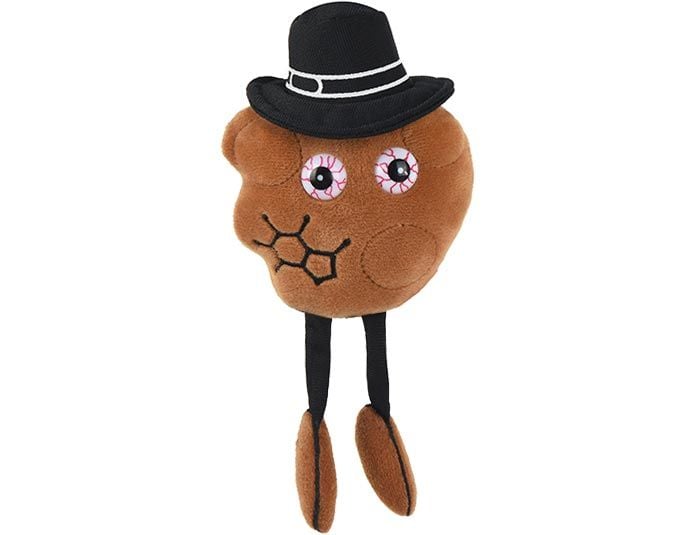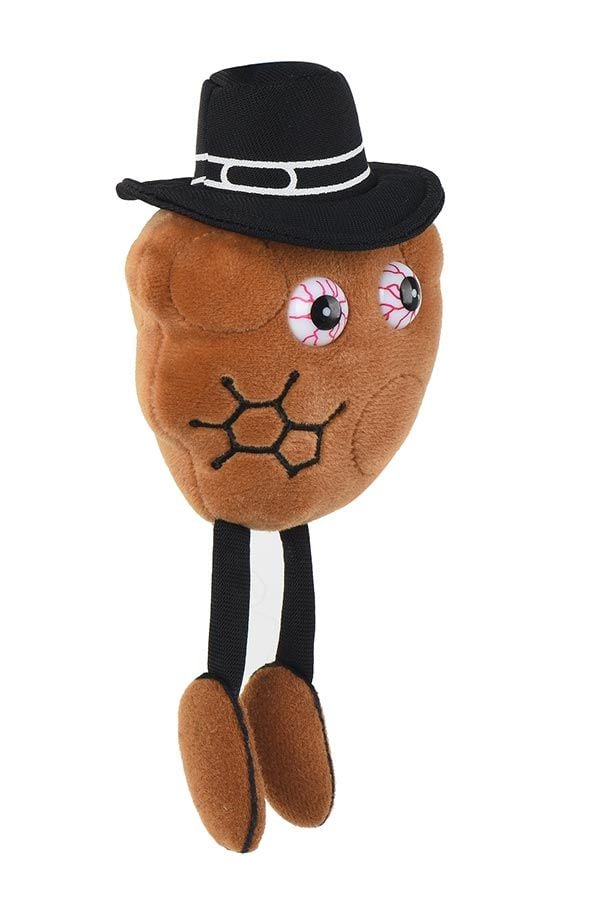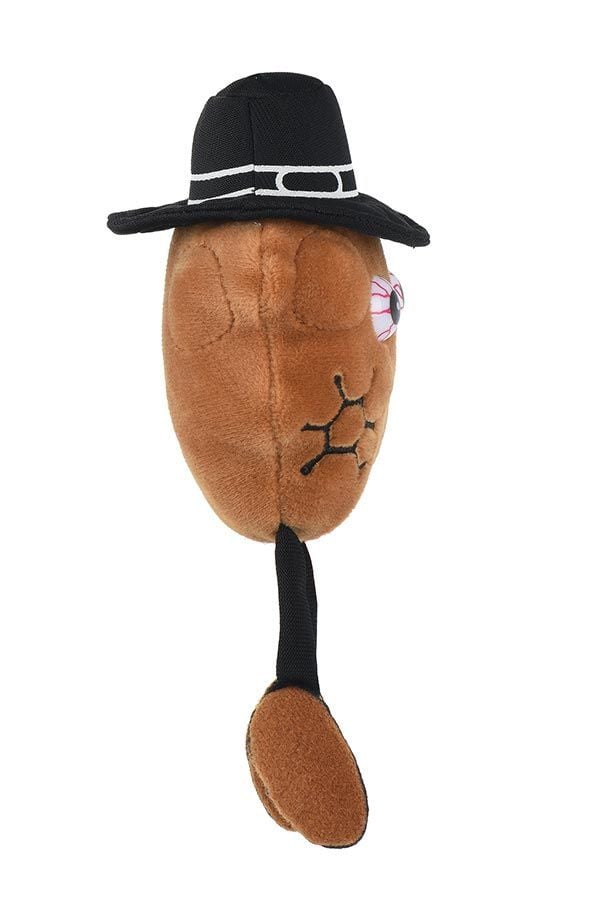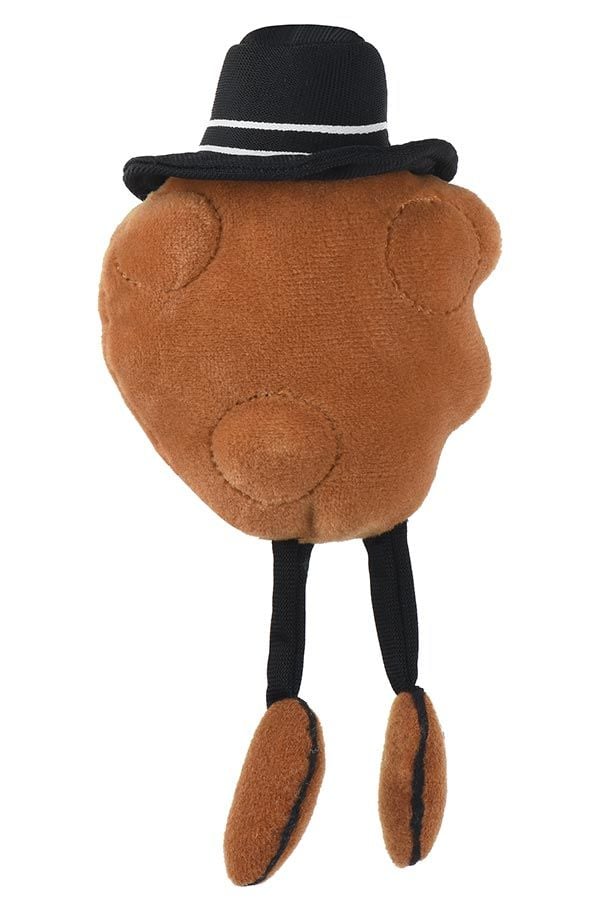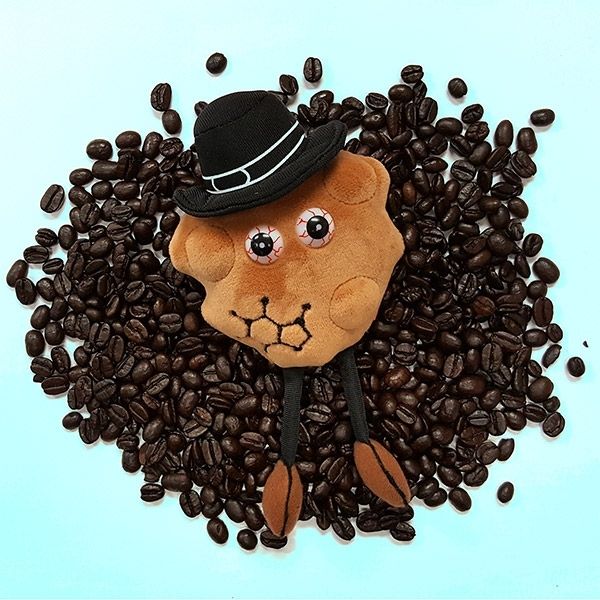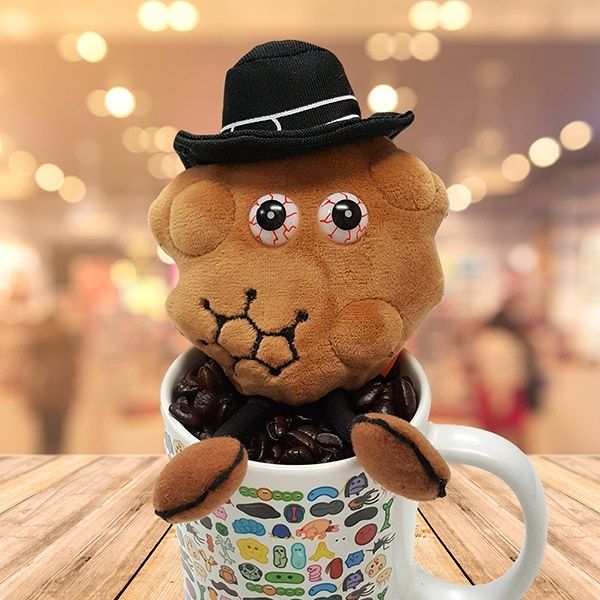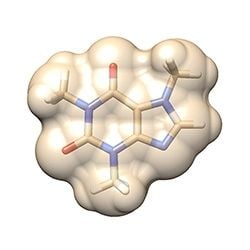Caffeine
Caffeine is an energetic topic! Our adorable plush Caffeine is based on the shape of the actual caffeine molecule and has coffee bean feet.
Learn about the science, brain biology and health benefits of Caffeine with GIANTmicrobes addictively fun plush Caffeine! A wonderful gift for friends, family, scientists, healthcare professionals, lovers of coffee, tea, science and health.
Features detailed stitching and includes an educational printed card with fascinating facts and caffeinated beverages and your brain.
Size: 15 x 8 x 5cm
Product Details
Additional Information
| Sizes | Giantmicrobes are based on actual microbes, cells, organisms and other critters, only 1,000,000 times actual size! Gigantic (GG) 40-60cm XL (XL) 25-38cm Original (PD) 12-20cm Keychain (KC) 5-10cm with clip |
|---|---|
| Materials | Plush from all new materials. Stuffed with polyester fiber fill. Surface washable: sponge with water & soap, air dry. |
| Packaging | Each plush microbe includes a printed card with fun, educational and fascinating facts about the actual microbe or cell. |
| Safety | Every product meets or exceeds U.S. and European standards for safety. For ages 3 and up. |
All about Caffeine
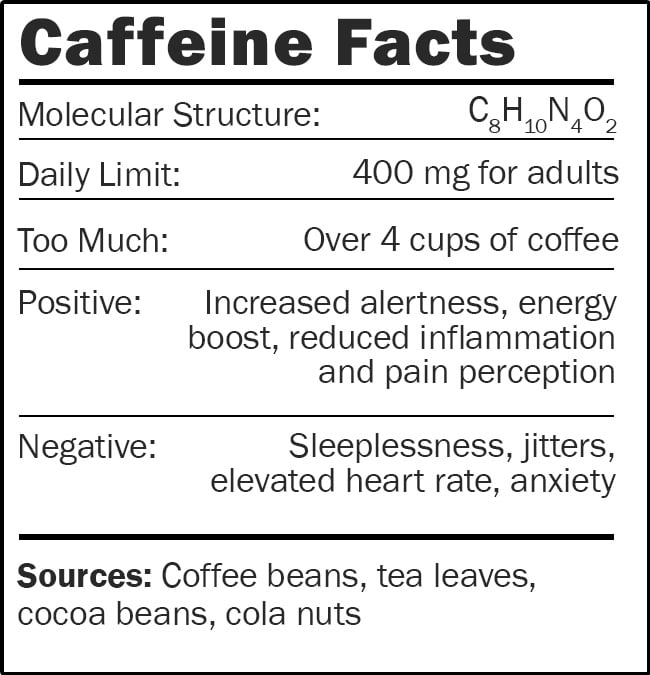

Caffeine Facts:
Caffeine is a naturally occurring stimulant found in over 60 different plant species from cocoa and coffee beans to cola nuts and tea leaves. With billions of cups of coffee, tea and soda consumed each year, the world is wired on caffeine. Early civilizations discovered that plants containing caffeine had stimulating effects. Some considered these plants as sacred. Massive trade in tea and coffee over the centuries led to the global demand for caffeine. Whether it is harmful, helpful, or both is a subject of great debate.
The benefits of caffeine include increased productivity and aid in memorizing and retrieving information. Caffeine may also reduce inflammation and help block the perception of pain. Some studies have shown that caffeine may slow memory decline in the elderly. The primary reason people consume caffeine is for its stimulating effects. On the negative side, caffeine can cause difficulty sleeping, jitters, increased heart rate, high blood pressure, anxiety and nausea. Many are willing to risk these negatives for increased wakefulness and alertness. But try to limit yourself to 400 mg of caffeine per day, or about two to three 8 oz. cups of coffee.
The caffeine molecule closely resembles a cellular molecule called adenosine, which signals the brain to slow the body down. Adenosine binds to neural receptors and reduces neuron activity, dilating blood vessels and making you feel sleepy. Due to its similar structure, caffeine blocks the adenosine receptors, essentially tricking your brain into thinking it is adenosine. The result is that caffeine speeds up the nerve cells and causes the brain’s blood vessels to constrict.
Caffeine can be addictive and its effects depend on your body size and your caffeine use. Daily coffee and tea drinkers have an altered neural chemistry. When you drink more caffeine your neurons grow more adenosine receptors, so it takes more caffeine to block the receptors and achieve the wakefulness effect. Because caffeine is addictive, if you cut back on it, you may go through withdrawal. It could take two weeks to kick the habit, which is the time it takes for the adenosine receptors to reset to baseline levels.


